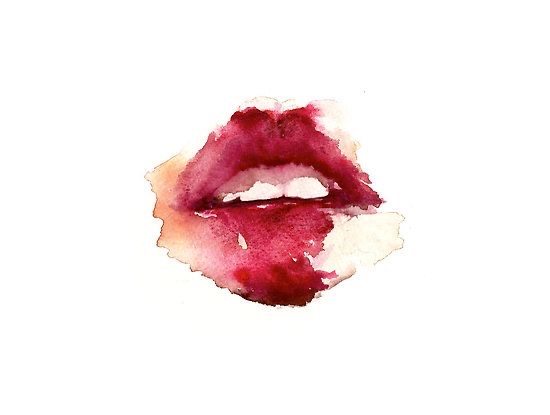
Cold sores: The disease of jealousy and comparison
Written by Mrs Nomfundo Madonsela
September, 8, 2022
Nothing quite like a cold sore to dampen your mood on a Monday morning as you prepare for work, school, or any other “important adult” weekly obligations. At the first sight of that prominent almost shiny blister on your lip or nose, you automatically concede to a week of heightened concern over your appearance. You’ll contemplate cancelling some appointments and even try your hardest to conceal this unwelcome guest now occupying your face!
What you may not realise though is the truth that although this cold sore seems to have magically appeared overnight, the virus that caused it had already been in your body for some time. Worse yet, the virus that causes the cold sore does not leave your body as soon as the sore is no longer visible, rather it remains dormant and waits for an opportune time (weakened immune system, stress) to attack again. Jealousy and comparison function much like cold sores. They emanate from a world within oneself, hidden and unseen until it is too late.
Jealousy and comparison await for the opportune time to manifest in your life. Their appearance can have disastrous effects on your state of mind. They become the driving force of decisions you take and actions that you carry out. Like a cold sore, they are evidence of an imbalance in your emotional life which, if not dealt with, ebbs away at the quality of your life. This toxic combo downplays the potential person you could be if you were not ensnared by jealousy & comparison. Psychology Today SA defines jealousy as “a complex emotion that encompasses feelings ranging from suspicion to rage to fear to humiliation. It strikes people of all ages, genders, and sexual orientations, and is most typically aroused when a person perceives a threat to a valued relationship from a third party. The threat may be real or imagined”. [2] The root cause of jealousy can be linked to low self-esteem and insecurity.
Self-esteem is the value that we place on ourselves. Our confidence, feelings of competence and our sense of belonging are all affected by self-esteem. A low self-esteem impacts how we feel about ourselves. It can drive a person to seek approval, love, or a sense of being valued in questionable ways that result in feelings of guilt and shame. For example, a person may be compelled to have sex with someone for the sake of gaining their approval stemming from deep desire to feel valued.
Comparison, which is also linked to low self-esteem, is a state where one is constantly directly comparing themselves to another person. The world today has seen a drastic rise in cosmetic surgery and related aesthetic procedures. People are in pursuit of bigger breasts, bigger lips, bigger bottoms. Many are seeking to look like their idols, who are perceived as the embodiment of perfection. It seems much easier to always compare ourselves with the best that others can do as opposed to the best that we can do.
What does doing the former do to us? When we compare ourselves to the best version of someone else, we slowly kill our true selves and start to resemble everyone else. What a tragedy, to live an inauthentic life! Essentially, jealousy and comparison are internal issues that have less to do with external forces and more to do with a glitch in personal development and self-mastery!
Physically the effects of jealousy can manifest as raised blood pressure, heart rate and adrenaline levels, weakened immunity, anxiety and often insomnia. Comparison can lead to depression, anxiety, and suicidal thoughts. Sexual and reproductive health are also compromised particularly when one has a low self-esteem as a consequence of jealousy and comparison. Low self-esteem can lead people to engage in more risky sexual behaviours such as unprotected sex with multiple partners. Thus, the rise in HIV and other sexually transmitted diseases. Evidently this can be a serious compromise on your quality of life.
So how do we overcome jealousy and comparison, and by extension increase probability for better health and higher self-esteem?
1. Get to know yourself:
Study yourself as a stranger would. Conduct a SWOT analysis where you consider your strengths, weaknesses, opportunities, and threats. Be truthful so that your findings will be accurate. Ask those who surround you to point out things that you may be blind to. Work on your weaknesses, acknowledge and further develop your strengths. This is the path to self-mastery.
2. Seek professional help:
Issues of the mind and emotions may be an overwhelming area to venture into on your own. Seek the aid of a professional who can safely guide you through the pivotal milestones of breaking negative cycles and creating positive new habits.
3. Acknowledge that you are unique and valuable:
There has never been nor will there ever be anyone like you. You were created to fulfill a purpose. Remind yourself of this even in the most trying times.
4. Guard your mind:
The mind is like a garden. Whatever you plant in it, you will surely reap! Choose what you read and listen to wisely.
We have the power to evoke meaningful change in our lives. This calls for an intentional effort on our part. Stepping out of your comfort zone to stretch the perimeters of who you believe yourself to be is a must! Will you choose to change simply to stay the same? It’s all in your hands.
References:
- Image – https://pin.it/5NkdnD3
- Available: https://www.psychologytoday.com/za/basics/jealousy.
Ubusha Bami futhi yimi lo – My youth and this is me! © 8 September 2022